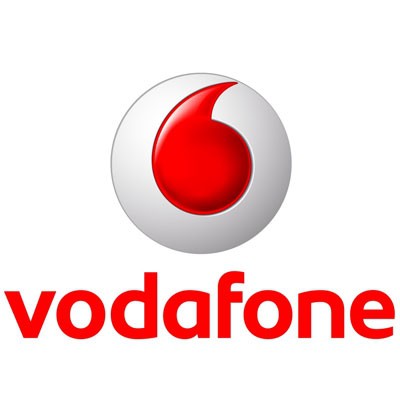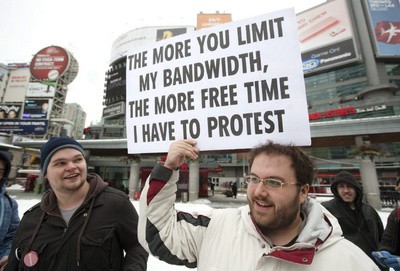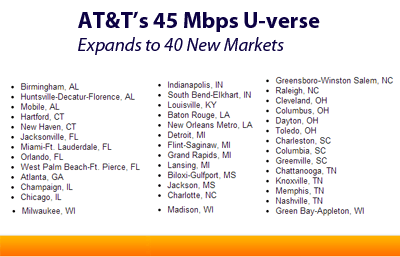 Executives at Canada’s largest telecom companies are sighing relief after Verizon announced it was not interested in competing in Canada.
Executives at Canada’s largest telecom companies are sighing relief after Verizon announced it was not interested in competing in Canada.
“Verizon is not going to Canada,” Lowell McAdam, chief executive officer of New York-based Verizon, said yesterday in a phone interview with Bloomberg News. “It has nothing to do with the Vodafone deal, it has to do with our view of what kind of value we could get for shareholders. If we thought it had great value creation we would do it.”
McAdam added he thought speculation about Verizon’s plans in Canada was “way overblown.”
[flv width=”480″ height=”290″]http://www.phillipdampier.com/video/CBC Big 3 Canada telecom stocks surge as Verizon threat fades 9-3-13.flv[/flv]
The CBC reports three of the largest telecom companies in Canada are seeing their stock prices soar on news Verizon won’t enter Canada. Kevin O’Leary takes a position shared by Bell, Telus and Rogers that no spectrum should be set aside for new competitors. Instead, he seeks a “winner takes all” auction, even if it means dominant incumbent carriers monopolize every available frequency. (3 minutes)

McAdam
Verizon’s possible entry into Canada was among the hottest stories of the summer, even reported on the CBC’s national nightly news. The potential new competition provoked Bell, Rogers, and Telus — three of Canada’s largest phone and cable companies — to join forces in a multimillion dollar lobbying effort to slow Verizon down and make the wireless business in Canada less attractive. The Harper government used news of Verizon’s potential entry to promote its policies favoring competition over regulation.
Verizon Chief Financial Officer Fran Shammo said the company was considering a wireless venture in Canada at a June Wall Street investor conference.
“We’re looking at the opportunity,” Shammo said at the time. “This is just us dipping our toe in the water.”
Verizon took its toe out yesterday, despite the potential profits available in a country criticized for its extremely expensive cell phone service.
“I’m surprised that Verizon isn’t interested in Canada,” tweeted Adam Shore. “There are over 33 million suckers up here that will pay ridiculous cell phone rates.”

Bell joined Telus and Rogers in launching a multi-million dollar lobbying effort to make Verizon’s entry into Canada difficult.
The three companies most Canadians now buy wireless service from denied they wanted to keep Verizon out, arguing they simply wanted a “level playing field.”
Industry Minister James Moore suggested a fourth large player could provoke a price war in a way much smaller wireless providers like Wind Mobile or Mobilicity never could. The government was willing to set aside coveted 700MHz wireless spectrum at a forthcoming auction to help a new entrant — any new entrant — get started.
Verizon’s decision to stay out might have delivered a damaging blow to the Conservative government’s “pro-competition” solution to the problem of high cell phone bills. After the announcement, Moore was left promising only that spectrum auctions would carry on regardless of Verizon’s decision.
For now, the best chance of increased competition comes from Quebecor, which is gradually expanding its wireless network. Spectrum set asides almost guarantee the owner of Quebec’s cable giant Vidéotron will be able to bid for and win significant spectrum at the upcoming auction, some at a discount.
“If Verizon doesn’t show up, they’re actually in a very strong position to buy a block of spectrum that will not be very expensive,” Maher Yaghi, an analyst at Desjardins Securities Inc., told Bloomberg News. “Wireless is currently providing them with a nice growth platform.”
Without a surprise late entrant suddenly announcing interest by the auction filing deadline of Sept. 17, many analysts predict the outcome will likely not deliver Canadians any significant changes in cell phone service and pricing. The government may also be disappointed with the auction proceeds. Canada’s big three will likely avoid overbidding and still end up dividing most of the available airwaves between them. Quebecor may end up with most of the rest at comparatively “fire sale” prices. The Montreal-based company must then decide how much it will spend to expand its home coverage areas outside of Quebec, Toronto, and southeastern Ontario.
[flv width=”640″ height=”372″]http://www.phillipdampier.com/video/BNN Verizon Wont Enter Canada 9-3-13.flv[/flv]
BNN reports Verizon’s decision not to enter Canada leaves the Conservative government without an effective means to moderate cell phone pricing in the country. Mary Anne de Monte-Whelan, president of The Delan Group, observed the government may be forced to take a more regulatory approach to control expensive cell service, possibly starting with roaming rates. (7 minutes)


 Subscribe
Subscribe
 Verizon hopes being the master of its own destiny will allow the company to innovate its wireless network towards future revenue opportunities, especially in the machine to machine connectivity business. Both AT&T and Verizon Wireless are racing to enable medical devices, home appliances, electric meters, and automobiles to communicate over their respective wireless networks. Both companies are concerned that the cell phone marketplace has become saturated in the United States, with most people desiring cell phone service already having it. With Wall Street demanding ongoing growth quarter after quarter, new revenue sources are more important than ever.
Verizon hopes being the master of its own destiny will allow the company to innovate its wireless network towards future revenue opportunities, especially in the machine to machine connectivity business. Both AT&T and Verizon Wireless are racing to enable medical devices, home appliances, electric meters, and automobiles to communicate over their respective wireless networks. Both companies are concerned that the cell phone marketplace has become saturated in the United States, with most people desiring cell phone service already having it. With Wall Street demanding ongoing growth quarter after quarter, new revenue sources are more important than ever.
 Although Time Warner Cable is crediting customers for the loss of Showtime/The Movie Channel, blocked by the cable operator while the impasse continues, Time Warner is not giving any automatic refunds for the loss of CBS basic or broadcast programming and networks taken off the cable dial. CBS-owned Smithsonian TV is the most affected basic cable channel nationwide. Some customers who pay extra for Smithsonian as part of an added-cost HD Tier often known as “TWCHD Pass” have gotten service credits upon request.
Although Time Warner Cable is crediting customers for the loss of Showtime/The Movie Channel, blocked by the cable operator while the impasse continues, Time Warner is not giving any automatic refunds for the loss of CBS basic or broadcast programming and networks taken off the cable dial. CBS-owned Smithsonian TV is the most affected basic cable channel nationwide. Some customers who pay extra for Smithsonian as part of an added-cost HD Tier often known as “TWCHD Pass” have gotten service credits upon request. the worst-rated cable operator in the United States, claims it needs usage caps and consumption billing to force heavy users to pay for needed upgrades. But that isn’t what Mediacom’s executives are telling investors and the Securities and Exchange Commission (SEC).
the worst-rated cable operator in the United States, claims it needs usage caps and consumption billing to force heavy users to pay for needed upgrades. But that isn’t what Mediacom’s executives are telling investors and the Securities and Exchange Commission (SEC). “
“
 Other customers incensed about the new usage limits have called to cancel service only to be threatened with steep early termination fees.
Other customers incensed about the new usage limits have called to cancel service only to be threatened with steep early termination fees. AT&T has boosted the maximum available broadband speed for its U-verse Internet offering to 45/6Mbps service in 40 cities across 15 states.
AT&T has boosted the maximum available broadband speed for its U-verse Internet offering to 45/6Mbps service in 40 cities across 15 states.